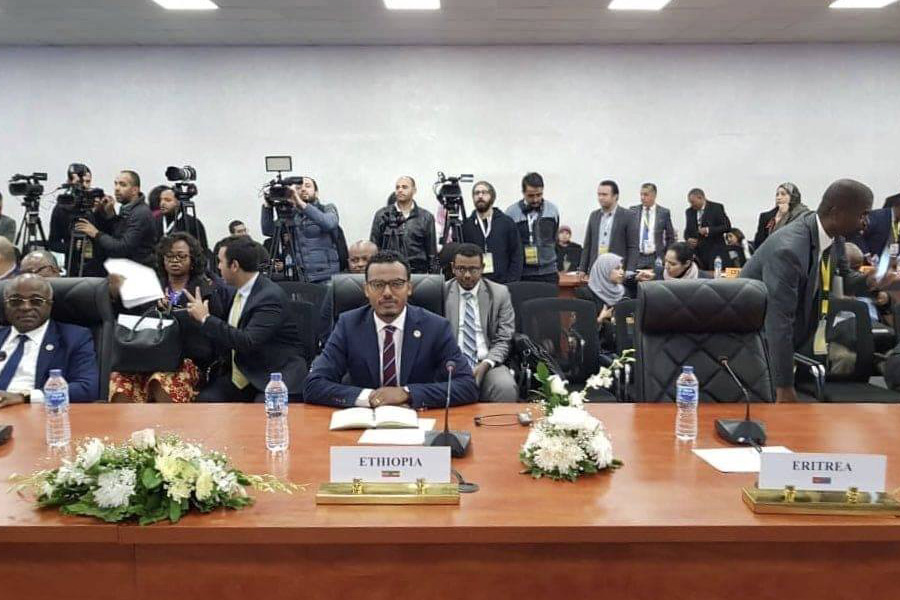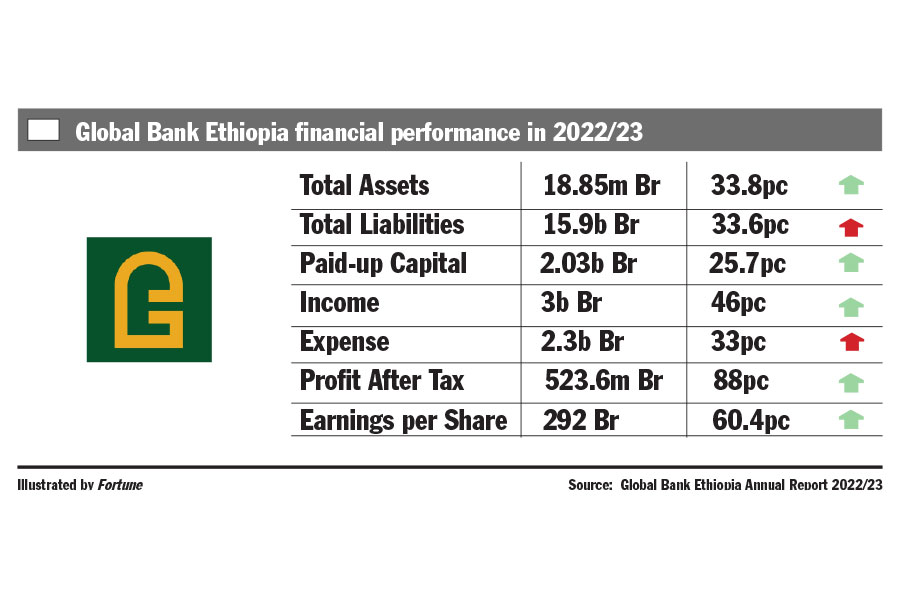
Viewpoints | Sep 14,2019
Jul 6 , 2019
By Asseged G. Medhin
A state that is determined to serve its citizens should not shrink and hold back the change every time it senses some resistance, argues Asseged G. Medhin, deputy CEO of operations at the National Insurance Company of Ethiopia (NICE). He can be reached at kolass799728@yahoo.com.
The new leadership that came to the forefront of Ethiopian politics a year ago has the ambition to create extraordinary economic growth, a broad spectrum and holistic social renaissance and a transformed political culture. This new type of a momentum model of leadership, unlike the traditional one, breaks linear processes to register multiple returns on investment. Existing leadership approaches take a value delivery perspective into an interactive and iterative model.
From the government side, it is putting in place endless efforts integrated with every sector iteratively checking the soundness of the operations. The political leadership aims at nothing less than the total transformation of the tedious and undemocratic bureaucracy. On the side of citizens, there has to be a dynamic interaction with the government that will compel it to be accountable. That creates a more democratic form of performance evaluation.
So far, the parliamentary evaluations of all ministries on the one-hundred-day targets are positive. These targets were set after Prime Minster Abiy Ahmed (PhD) came to power in order to maintain the momentum of the change to address the expectations of the public.
The most acceptable model of momentum is to remain stable during acceleration and be more active and engaged during crises. A permanent state of interaction between the state target and expectation of the citizens enables each to feed off the other and improve within the momentum. That needs to be the core of the evaluation.
When the government achieves a breakthrough in transforming the most archaic rules and regulations, that hold back innovation, the momentum model will operate efficiently by releasing the most valuable asset of the nation – its human capital. For more than a year now one can discern a pattern of a move towards a more inclusive and dynamic model of both design and execution of projects that are meant to inspire confidence and kick start the economy.
Abiynomics (the political and economic view of the PM) has to be coined with the model of the momentum of the change that is meant to be a powerful tool to achieve the targets set to satisfy the needs of citizens. The unsatisfied need of citizens in the momentum model should not always be viewed as a resistance of the ongoing change. It is instead an opportunity for further transformational integration of political, economic, psychological, social, and cultural change.
An iterative engagement and interactive play of the government in all aspects within the change must be dynamic. This is especially true in times of crises. The momentum has to be kept, even pushed further in order not to be distracted from the set targets. In this model, citizens have to own the change and actively engage in governing processes and policy formation discussions as they are the ones that will carry the burden of failed policies. If there is to be Democratic and transformative change, the interaction has to be a two-way street. The government, diligently working to meet the needs of citizens and citizens holding the government accountable. The power created in this momentum will effect change in all sectors of Economic activity.
All change creates some form of unsatisfied need, and it continues to create a more dynamic interaction to satisfy the demand. This inherent nature of dynamic interaction and unmet need should get space in the momentum. That is why a State that is determined to serve its citizens should not shrink and hold back the change every time it senses some resistance. It is a more aggressive move to persevere with the change that will help the government to maintain the momentum and meet the expectations of citizens.
In the existing transformation momentum model, the government should refrain from making dogmatic, sequential decisions across ministerial offices, as that will hamper the momentum of the change. Instead, the professionals and experts in these line ministries should be given the leeway to make decisions in the day-to-day, dynamic situation, within the larger guidance of the policy framework. The government should be more free, transparent and interactive without bringing down the pace of the change.
The government has faced multiple challenges that creates frustration and loops in the system. These challenges should be turned in to opportunities for growth. Momentum could be regained in a dynamic approach than dogmatic decision making to clear the problem at hand. The government has to regain the momentum without spending its energy on dogmatic decisions. It is only through dynamic interaction with the citizens and an iterative engagement with change agents that we reach the promised land.
The government should radiate more positive energy to strengthen the momentum of the change. As it has been said, "No matter how long the night may be, the day is sure to come.’’
PUBLISHED ON
Jul 06,2019 [ VOL
20 , NO
1001]


Viewpoints | Sep 14,2019

Viewpoints | May 08,2021

Commentaries | Jun 29,2019

Commentaries | Sep 16,2023

Editorial | Dec 21,2019

Editorial | Mar 19,2022

Fortune News | Oct 15,2022

Fortune News | Oct 23,2018

Viewpoints | Jan 03,2021


Photo Gallery | 176264 Views | May 06,2019

Photo Gallery | 166479 Views | Apr 26,2019

Photo Gallery | 156958 Views | Oct 06,2021

My Opinion | 136897 Views | Aug 14,2021

Dec 22 , 2024 . By TIZITA SHEWAFERAW
Charged with transforming colossal state-owned enterprises into modern and competitiv...

Aug 18 , 2024 . By AKSAH ITALO
Although predictable Yonas Zerihun's job in the ride-hailing service is not immune to...

Jul 28 , 2024 . By TIZITA SHEWAFERAW
Unhabitual, perhaps too many, Samuel Gebreyohannes, 38, used to occasionally enjoy a couple of beers at breakfast. However, he recently swit...

Jul 13 , 2024 . By AKSAH ITALO
Investors who rely on tractors, trucks, and field vehicles for commuting, transporting commodities, and f...

Oct 18 , 2025
The political establishment, notably the ruling party and its top brass, has become p...

Oct 11 , 2025
Ladislas Farago, a roving Associated Press (AP) correspondent, arrived in Ethiopia in...

Oct 4 , 2025
Eyob Tekalegn (PhD) had been in the Governor's chair for only weeks when, on Septembe...

Sep 27 , 2025
Four years into an experiment with “shock therapy” in education, the national moo...

Oct 18 , 2025 . By NAHOM AYELE
In a sweeping reform that upends nearly a decade of uniform health insurance contribu...

A bill that could transform the nutritional state sits in a limbo, even as the countr...

Oct 18 , 2025 . By SURAFEL MULUGETA
A long-planned directive to curb carbon emissions from fossil-fuel-powered vehicles h...

Oct 18 , 2025 . By BEZAWIT HULUAGER
Transaction advisors working with companies that hold over a quarter of a billion Bir...